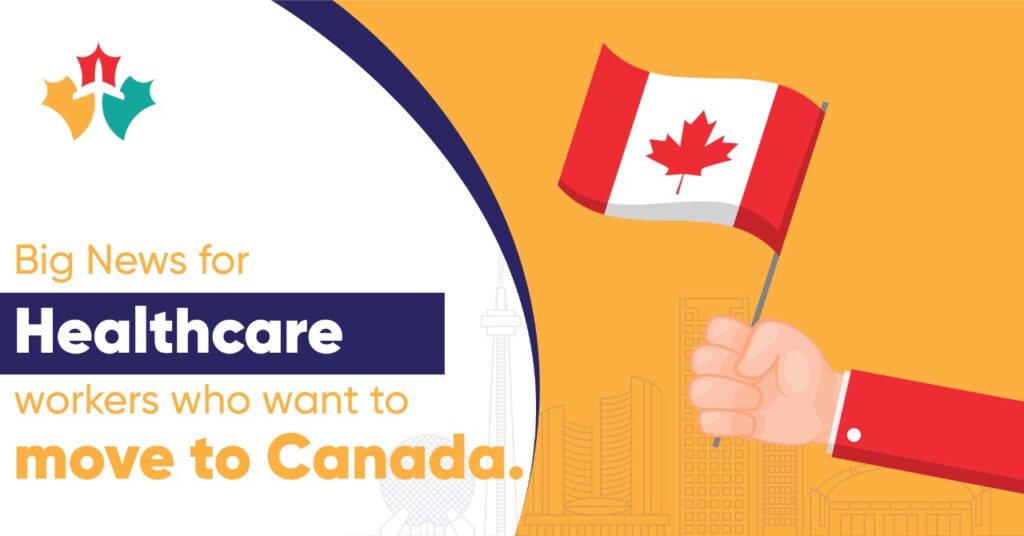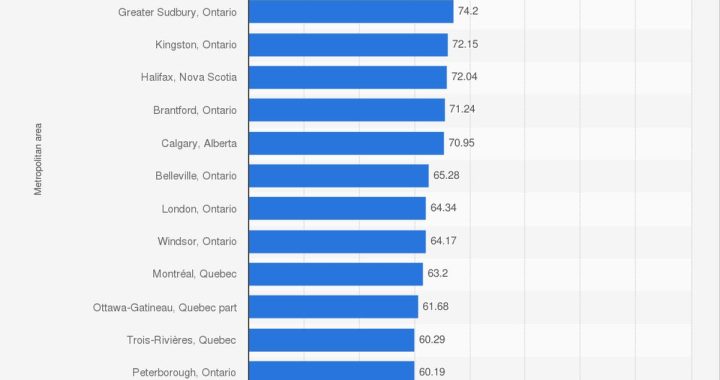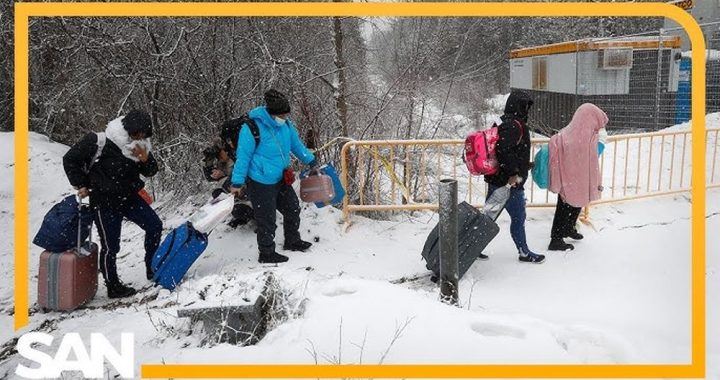Options for Immigrating to Canada as a Healthcare Worker- Best Canadian Provinces that offer good salaries

Immigrating as Health Care Professional in Canada
Canada is actively seeking skilled healthcare workers to address the growing demand in its healthcare system. As a healthcare worker, you have several options to immigrate to Canada, each with its own eligibility requirements and processing timelines.
Here’s an overview of the main pathways to immigrate to Canada as Health Care Professional:
Express Entry:
This is the main federal immigration system for skilled workers, including healthcare professionals.
It’s a points-based system that considers your education, work experience, language skills, and other factors.
To be eligible, you need to meet the minimum requirements for one of the three programs managed under Express Entry:
Federal Skilled Worker Program (FSWP):
Requires at least one year of continuous skilled work experience in the past 10 years and a Canadian Educational Credential Assessment (ECA) for your foreign education.
Canadian Experience Class (CEC):
Requires at least one year of skilled work experience in Canada in the past three years.
Federal Skilled Trades Program (FSTP):
Requires relevant skilled trades experience and qualifications, as well as a valid certificate of qualification from a Canadian trade regulatory body.
Provincial Nominee Programs (PNPs):
Each Canadian province and territory has its own PNP, which allows them to nominate immigrants who meet their specific labor market needs.
Some PNPs have dedicated streams for healthcare workers, making it a faster and more targeted option compared to Express Entry.
The eligibility requirements and application processes vary by province, so you’ll need to research the specific PNP(s) that align with your skills and experience.
Caregiver Pilots to Immigrate to Canada as Health Care Provider:
Canada has two pilot programs for foreign caregivers who wish to obtain permanent residence:
Home Child Care Provider Pilot- Best program to Immigrate to Canada for experienced child caregivers.
In this Canadian immigration program launched in June 2019 that offers foreign nationals with experience in child care the opportunity to immigrate to Canada and eventually obtain permanent residency. Here are some of its salient features:
Target Participants:
Foreign nationals with work experience caring for children under 18 in their own home or in the child’s home (not institutional settings).
No requirement for foster parent experience.
Path to Permanent Residency:
Applicants can secure a temporary work permit as a home child care provider.
After gaining 12 months of qualifying work experience in Canada, they can apply for permanent residency.
Eligible family members, such as spouses or partners and children, can also come to Canada and work or study while the main applicant gains work experience.
Key Benefits:
Faster pathway to permanent residency compared to traditional Express Entry or other PNP programs.
Home Support Worker Pilot:
For experienced home support workers who have cared for someone needing assistance.
These programs offer a pathway to permanent residence through work experience in Canada, making them attractive options for caregivers who can secure a job offer.
Health-care workers permanent residence pathway for refugees:
This pathway is specifically for pending or failed refugee claimants who are already living in Canada and have been working in the healthcare sector with a valid work permit.
They must meet specific work experience requirements in designated healthcare occupations.
Network with other healthcare professionals in Canada: This can help you learn about job opportunities and gain valuable insights into the Canadian healthcare system.
Salary levels for healthcare workers in Canada can vary significantly depending on several factors, including:
- Specific job role: Doctors, nurses, and other healthcare professionals will naturally have different salary ranges.
- Province/Territory: Costs of living and labor market demands can affect salaries across provinces.
- Experience and qualifications: Years of experience, specialized qualifications, and leadership roles can significantly impact earnings.
- Employment setting: Public hospitals, private clinics, and rural locations can offer differing salary structures.
Here’s a general overview of average salaries for some common healthcare professions across various provinces:
| Province/Territory | Registered Nurse (RN) | Licensed Practical Nurse (LPN) | Healthcare Aide | Physician |
| Ontario | $84,000 – $104,000 | $56,000 – $70,000 | $44,000 – $52,000 | $250,000 – $350,000 |
| British Columbia | $76,000 – $90,000 | $50,000 – $62,000 | $40,000 – $48,000 | $200,000 – $300,000 |
| Alberta | $78,000 – $95,000 | $52,000 – $65,000 | $42,000 – $50,000 | $220,000 – $320,000 |
| Quebec | $72,000 – $86,000 | $48,000 – $58,000 | $38,000 – $46,000 | $200,000 – $280,000 |
| Nova Scotia | $68,000 – $82,000 | $44,000 – $54,000 | $36,000 – $44,000 | $180,000 – $250,000 |
Comparing Immigration program for Health Care professionals in Various Canadian Provinces
| Feature | Ontario’s Human Capital Priorities Stream | British Columbia Healthcare Worker Stream | Saskatchewan’s International Health Worker EOI Pool | Nova Scotia’s Labour Market Priorities Stream | New Brunswick’s Internationally Educated Nurses (IEN) Program |
| Target audience | Skilled workers in high-demand occupations, including healthcare | Primarily healthcare professionals | Healthcare professionals | Skilled workers in demand occupations, including healthcare | Internationally educated nurses (RNs) |
| Eligibility requirements | Express Entry profile with high CRS score, relevant work experience, language proficiency | Healthcare professional with valid Canadian work permit, eligible occupation, language proficiency | Healthcare professional with eligible occupation, language proficiency | Express Entry profile with high CRS score, relevant work experience, language proficiency | Registered nurse (RN) license, Canadian language proficiency test, proof of healthcare experience |
| Application process | Express Entry application followed by PNP nomination application | Dedicated application stream within BC PNP | EOI submission followed by invitation to apply | Express Entry application followed by PNP nomination application | Dedicated application stream within NB PNP |
| Processing time | 6-12 months | 6-9 months | 3-6 months | 6-12 months | 4-6 months |
| Streamlined processing for healthcare workers? | Yes, through Express Entry draws targeting healthcare professions | Yes | Yes | Yes, through targeted draws | Yes |
| Additional benefits | Access to Ontario health insurance and other provincial benefits | Potential financial support for relocation and licensing | Potentially faster processing times | Access to Nova Scotia health insurance and other provincial benefits | Access to NB health insurance and other provincial benefits |
Additional notes:
- This table is a general overview and specific eligibility requirements and processing times may vary.
- Each PNP program has its own website with detailed information, so it’s important to refer to the official sources for the latest updates.
- The best PNP program for you will depend on your individual circumstances and qualifications. Consider factors such as your eligible occupation, language proficiency, work experience, and desired province of residence.

 Express Entry Updates for 2025: What Immigrants Need to Know
Express Entry Updates for 2025: What Immigrants Need to Know  Navigating Challenges: Canadian Cities, with High Crime Rate, moderate Job Opportunities, Where Immigrants May Struggle to Settle
Navigating Challenges: Canadian Cities, with High Crime Rate, moderate Job Opportunities, Where Immigrants May Struggle to Settle  The Shadowy Trade: Understanding Canadian “Coyotes” for Immigration and Protecting Yourself
The Shadowy Trade: Understanding Canadian “Coyotes” for Immigration and Protecting Yourself  Now Canada Can cancel the Travel Visa or Study Permit issued- What You Need to Know About Visa, Work, and Study Permit Cancellations
Now Canada Can cancel the Travel Visa or Study Permit issued- What You Need to Know About Visa, Work, and Study Permit Cancellations  Impact of Anti-Immigrant Sentiment on Canada’s Provinces and Job Sectors
Impact of Anti-Immigrant Sentiment on Canada’s Provinces and Job Sectors  America’s 2025 Deportation Crackdown: Should You Stay or Self-Deport?
America’s 2025 Deportation Crackdown: Should You Stay or Self-Deport?